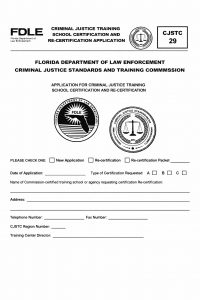Most people don’t think about witnesses until they actually need one. But when you’re sitting across from a notary, ready to sign something important, that witness requirement suddenly becomes very real. And not just any witness will do.
The difference between having the right witness and the wrong one can determine whether your document holds up when it matters most. I’ve seen too many cases where people thought they had everything covered, only to discover their witness choice created problems they never saw coming.
What Makes a Witness Actually Impartial?
An impartial witness doesn’t have skin in the game. They’re not getting anything out of your transaction. They don’t care whether you sign or walk away. Their only job is to watch you sign and confirm you did it willingly.
This sounds simple enough, but people make mistakes here all the time. Your business partner can’t be your witness, even if they’re the most trustworthy person you know. Your sister can’t witness your will, even though she’s been helping you with your affairs for years. The rules exist for good reasons.
Think about it this way: if someone later questions your document, you want a witness who can honestly say they had absolutely no reason to care about the outcome. That’s what gives their testimony real weight.
Why Courts Care So Much About Witness Impartiality
Judges have seen every trick in the book. They know how easy it is for someone to pressure a family member or business associate into signing something. They also know how tempting it might be for that same family member or associate to look the other way if something seems off.
Courts don’t just prefer impartial witnesses. They often require them. In many states, having a biased witness can invalidate your entire document. Imagine spending months negotiating a contract, only to have it thrown out because your witness had a conflict of interest you didn’t consider.
The legal system built these requirements because they work. Impartial witnesses create a buffer against fraud and coercion. They provide credible testimony when disputes arise. Most importantly, they give everyone involved confidence that the process was fair.
Real-World Consequences of Getting This Wrong
Let me give you an example that happens more often than you’d think. An elderly man wants to update his will. His daughter helps him through the process and witnesses the signing. Seems reasonable, right?
Wrong. When the man passes away, his other children contest the will. They argue that their sister influenced their father’s decisions and that her role as witness proves the document isn’t valid. Even if the daughter acted in perfect good faith, her dual role creates exactly the kind of conflict courts worry about.
The family ends up in expensive litigation that could have been avoided entirely with an impartial witness. The legal fees eat into the estate, relationships get damaged and the father’s actual wishes become secondary to the fight over whether the document is legitimate.
Finding the Right Person for the Job
So who can actually serve as your impartial witness? The person needs to meet some basic requirements that are stricter than most people realize.
They need to be adults who can verify your identity. This usually means they either know you personally or can examine your ID and confirm it’s legitimate. They also need to understand what they’re witnessing and be able to testify about it later if necessary.
But here’s where it gets tricky. They can’t be related to you. They can’t be named in the document. They can’t work for you or do business with you. They can’t even be close friends who might feel pressure to go along with whatever you want to do.
The witness also can’t have strong opinions about your decision. If your neighbor thinks you’re making a terrible mistake with your will, they’re probably not the right choice either. You need someone who can observe the process objectively.
Red Flags That Disqualify Potential Witnesses
Some conflicts of interest are obvious. Your spouse can’t witness your will. Your business partner can’t witness your partnership agreement. Your employee can’t witness documents related to your business.
Other conflicts are subtler but just as problematic. The friend who’s been giving you advice about the transaction probably shouldn’t witness it. The family member who disagrees with your decision definitely shouldn’t. Even someone who stands to benefit indirectly might not be appropriate.
When in doubt, find someone else. The extra effort of locating a truly neutral witness is nothing compared to the potential cost of having your document challenged later.
Professional Notaries Solve Most of These Problems
This is why many people work with professional notary services instead of trying to find their own witnesses. Notaries are trained to spot potential conflicts of interest. They understand the legal requirements for different types of documents. Most importantly, they have no connection to your personal or business affairs.
A professional notary brings credibility that’s hard to match with informal witnesses. They keep detailed records, carry liability insurance and follow strict ethical guidelines. When someone questions your document later, having a certified professional as your witness carries significant weight.
Professional notaries also understand timing and procedure in ways that casual witnesses might not. They know how to verify identity properly, how to confirm that you understand what you’re signing and how to document the entire process according to legal standards.
Choose Trusted Notary Services for Your Documents
Making Smart Choices for Important Documents
The witness requirement isn’t just bureaucratic red tape. It’s protection for everyone involved in the transaction. The few extra minutes it takes to find an appropriate witness can save you months of legal problems down the road.
For routine documents, you might be comfortable finding your own witness as long as they meet all the impartiality requirements. For important documents like wills, trusts, or major contracts, professional notary services are usually worth the investment.
Either way, take the requirement seriously. Don’t assume that someone who seems neutral actually is. Don’t cut corners because it’s inconvenient to find the right person. And don’t let anyone pressure you into using a witness who might not be appropriate.
Your future self will thank you for getting this right the first time. The alternative is dealing with document challenges, legal disputes and expensive litigation that could have been prevented with better planning.
The rules around impartial witnesses exist because they work. They protect against fraud and coercion. They ensure that your documents will stand up to scrutiny when it matters. Most importantly, they give you confidence that your legal affairs are handled properly.
When you need to sign something important, take the time to find the right witness. It’s one of the smartest investments you can make in your legal and financial future.









